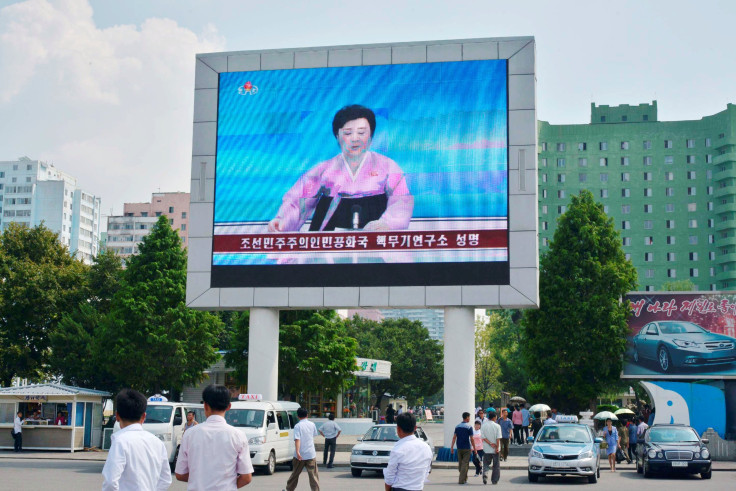North Korea-South Korea War? Seoul Planning To Annihilate Pyongyang In Case Of Nuclear Attack Signs, Report Says

After North Korea drew global condemnation over its fifth nuclear test, a report by Yonhap New Agency said Sunday that South Korea has come up with a plan to raze the North’s capital Pyongyang in case the rival neighbor shows any signs of a nuclear attack.
Following the North’s latest test, the South Korean defense ministry had presented the "Korea Massive Punishment & Retaliation" (KMPR) to the national assembly. The operation is “aimed at wiping a certain section of Pyongyang completely off the map,” a military source told the South Korean news agency.
“Every Pyongyang district, particularly where the North Korean leadership is possibly hidden, will be completely destroyed by ballistic missiles and high-explosive shells as soon as the North shows any signs of using a nuclear weapon. In other words, the North’s capital city will be reduced to ashes and removed from the map,” the source told Yonhap.
As per the operational concept, pre-emptive bombing attacks will be carried out on the secretive state’s leader Kim Jong Un and the country’s military leadership, according to the report. Seoul’s developed surface-to-surface ballistic missile arsenal, including Hyunmoo 2As, 2Bs and Hyunmoo 3s — that have ranges between about 186 miles and 621 miles — is expected to be used during the attack, the source reportedly said.
The South Korean military reportedly plans to complete launch tests of the missiles and increase the Hyunmoo missile arsenal.
“The KMPR is the utmost operation concept the military can have in the absence of its own nuclear weapons,” the source said.
On Friday, North Korea confirmed that it carried out the nuclear test as a response to international sanctions against the country for its nuclear tests and rocket launch earlier this year. The move was strongly criticized by South Korea, the U.S., Australia, France, Japan, Russia and China — Pyongyang’s major diplomatic ally.
The United Nations Security Council said Pyongyang of showed “flagrant disregard” and “clear violation” of existing U.N. resolutions.
Meanwhile, on Sunday, U.S. special envoy for the reclusive state Sung Kim said that the U.S. is likely to impose unilateral sanctions against North Korea for the latest test.
“In addition to action in the Security Council, both the U.S. and Japan, together with the Republic of Korea [South Korea], will be looking at unilateral measures, as well as bilateral measures, as well as possible trilateral cooperation,” Sung said.
Washington and Tokyo were considering “a full range of possibilities, in terms of additional unilateral sanctions that can be implemented,” the envoy said, adding that precise details of the sanctions are yet to be finalized.
© Copyright IBTimes 2025. All rights reserved.






















